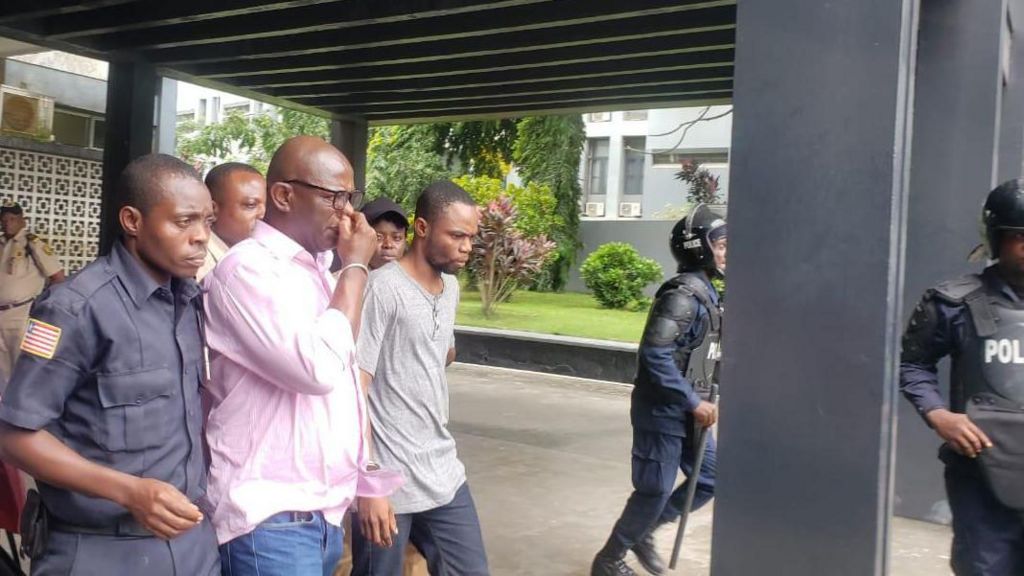
An arrest warrant has been issued for Liberia’s former finance minister, Samuel Tweh, following allegations of his involvement in a $500 million (£389 million) corruption scam.
Tweh, along with four other senior officials from former President George Weah’s administration, has been indicted for allegedly stealing from the government during their tenure. Previously sanctioned by the US for corruption, Tweh has labeled the indictment a “politically motivated witch-hunt” against him and his colleagues.
The Weah administration, which ended in January, was plagued with allegations of corruption and financial mismanagement. Upon taking office, President Joseph Boakai pledged to crack down on corruption.
On Monday, the five former officials were indicted on charges including economic sabotage, illegal disbursement and expenditure of public funds, and criminal conspiracy. The City Court in Monrovia subsequently issued warrants for their arrest.
Three of the men—former national security adviser Jefferson Karmoh, state prosecutor Nyenati Tuan, and accountancy boss at the Financial Intelligence Agency (FIA) Moses Cooper—were unable to pay bail and have been detained in Liberia’s central prison. They, or their legal representatives, have not yet commented on the allegations.
Tweh and former FIA chief Stanley Ford have not yet been arrested, as the police are unsure of their whereabouts.
This is not the first time the ex-finance minister has faced corruption allegations. Last December, the US sanctioned him and two senators for “abusing their public positions through soliciting, accepting, and offering bribes.”
Tweh denied these allegations at the time and responded to Monday’s indictment on Facebook, stating, “Today, a politically motivated witch-hunt has been officially launched against my person, calling for my arrest. Over the last six years, I have been a major political target and have faced falsely devilish accusations.”
President Boakai, who took office in January after defeating Weah in a run-off election, has declared his assets and ordered an audit of the presidential office as part of his anti-corruption drive. The results of the audit have not yet been released. Boakai has also strengthened the General Auditing Commission and the Anti-Corruption Commission.
